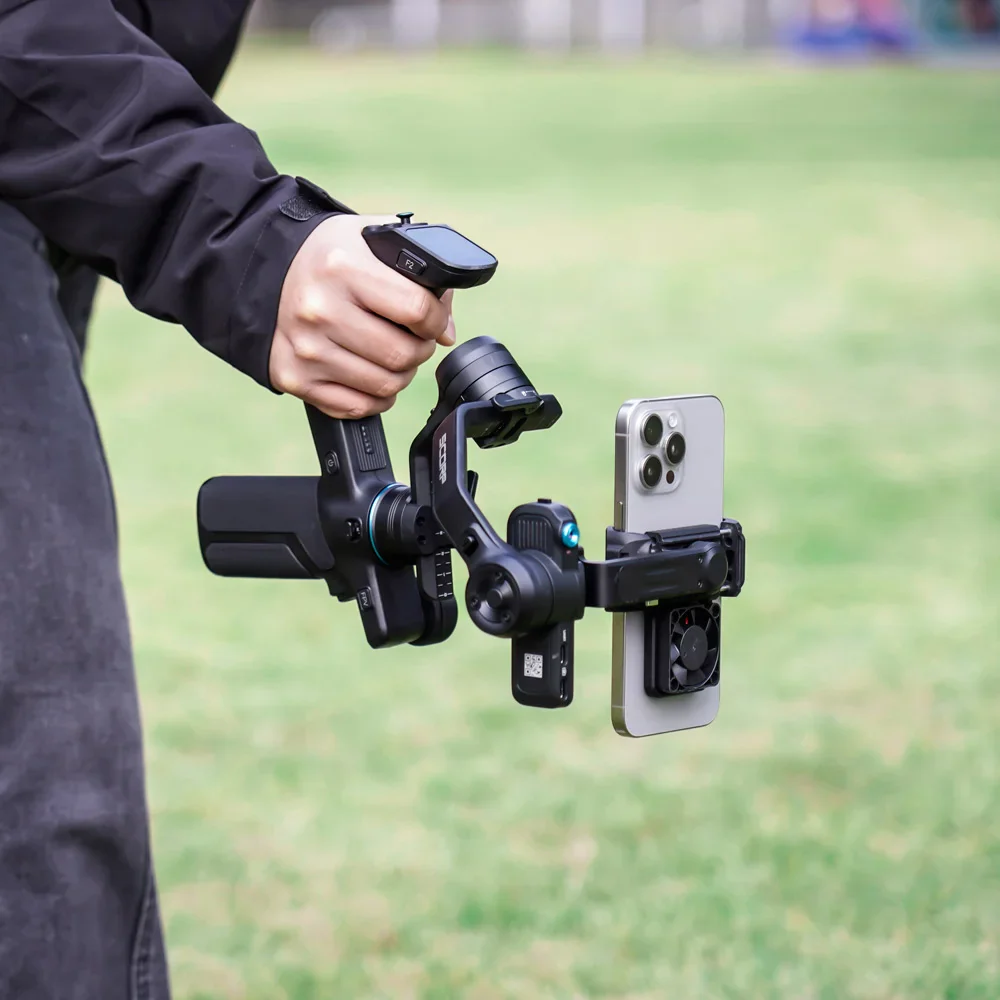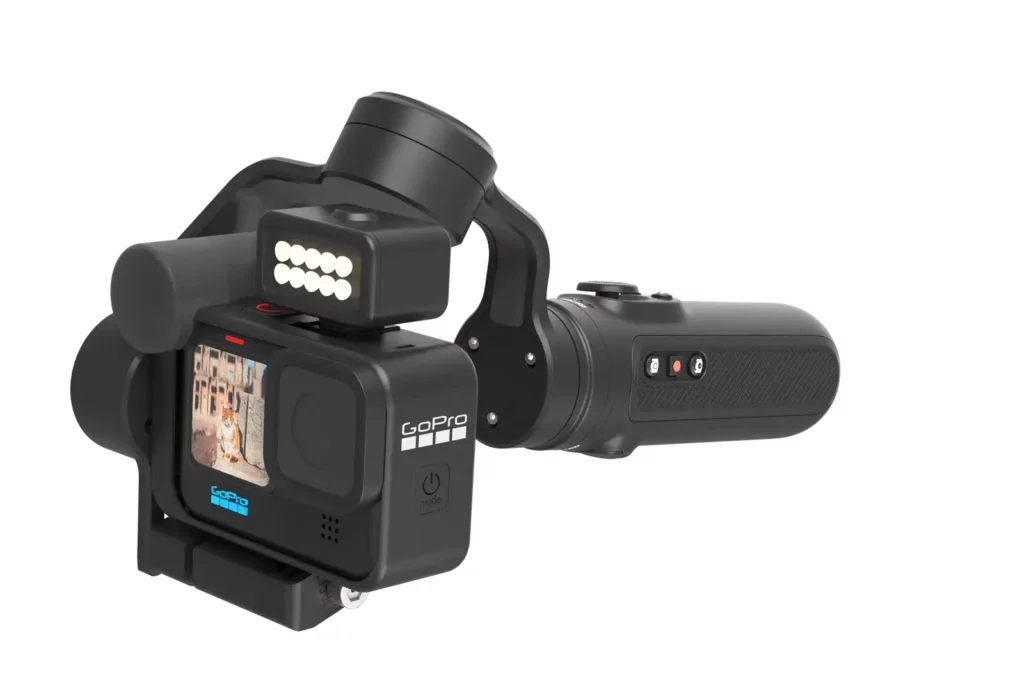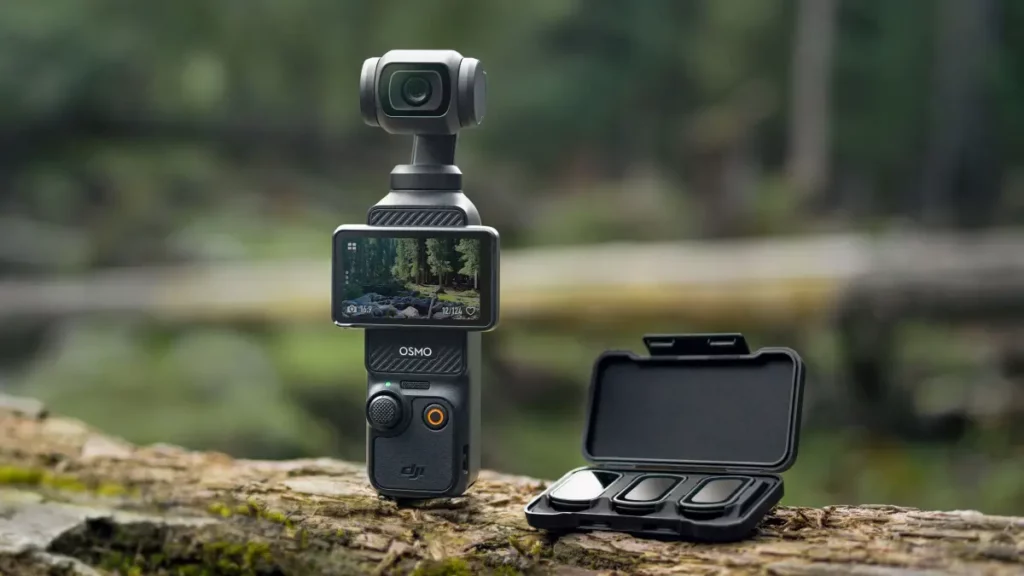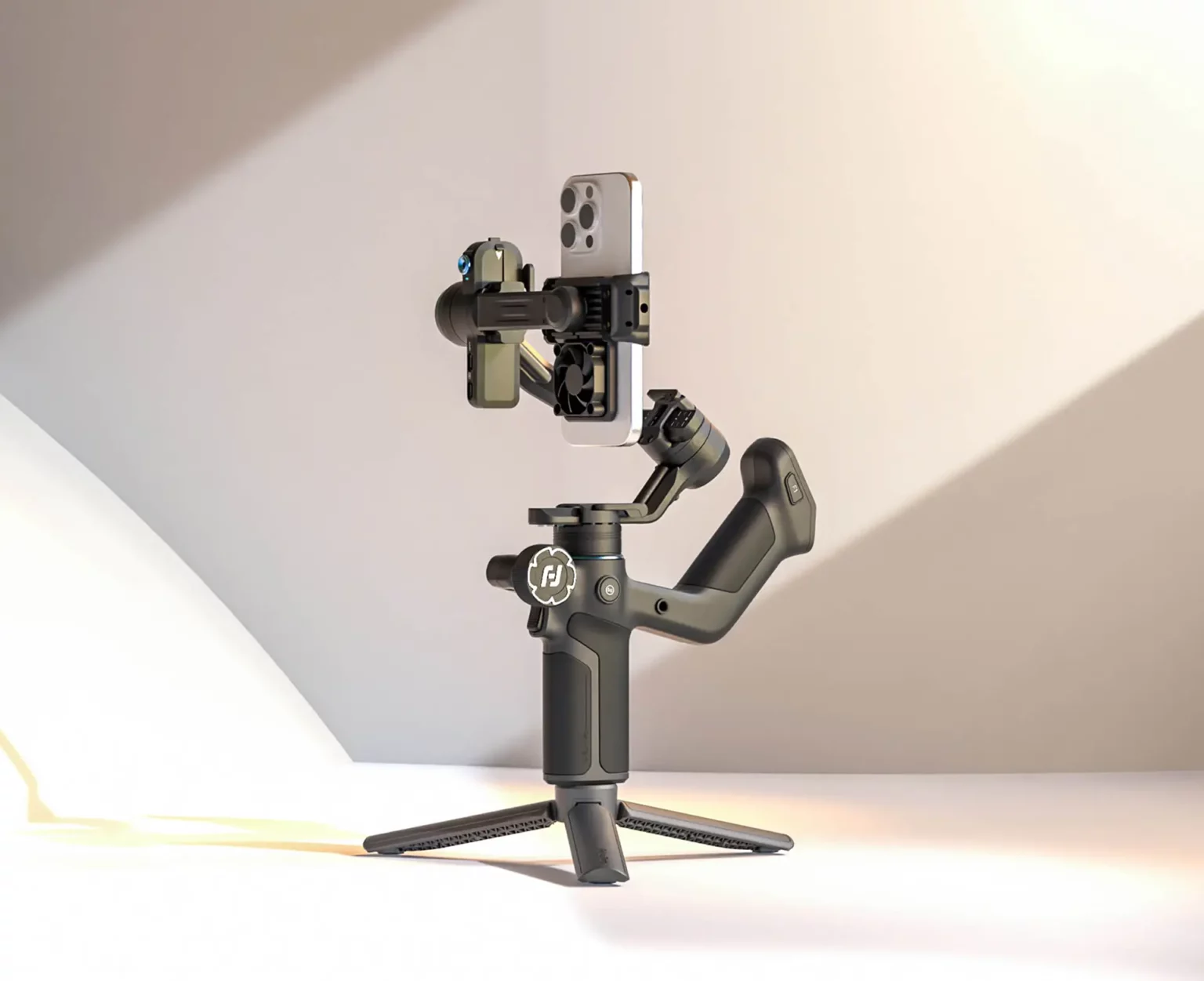It has been a busy couple of months in the stabilization world. In this gimbal industry news roundup I pull together the most useful updates from late July through August 2025, highlight what actually matters for creators, and—crucially—suggest smart next steps for your kit. As always, I’ll link to deeper reviews and guides across GimbalReview.com for context.
Headline Launch: FeiyuTech SCORP Mini 3 Pro (Hybrid, 2 kg payload)
Feiyu’s new SCORP Mini 3 Pro doubles down on the “one gimbal for everything” promise. It supports smartphones, action cams, compact cameras, and mirrorless bodies, adds a built-in AI tracking module, and claims all-day battery. In my early tests it feels like the first compact hybrid that truly covers all three device types without feeling compromised. If you shoot phone + GoPro + mirrorless, this is the most interesting compact launch right now.
- Why it matters: one rig for multiple devices reduces pack weight and cost.
- Creator impact: faster vertical shooting and solo filming via AI tracking.
- Next steps: my full deep dive is in progress—watch for it on-site soon.

Smartphone Gimbals: Tracking, lights, and app-agnostic control
Smartphone stabilisers continue to evolve in two directions: genuinely useful AI/subject tracking that works outside the companion app, and integrated lighting for low-light reels. If you film yourself frequently, these features save time and deliver more consistent framing.
- DJI OM/Osmo Mobile line: bright built-in light, strong app polish, great for vlogging.
- Insta360 Flow 2: still the portability leader; the AI bundle unlocks app-agnostic tracking.
- Hohem iSteady V3 series: excellent value with effective tracking modules and long battery life.
Choosing between them? If you prioritise pocketability, go Flow 2. If you want the brightest light and class-leading software, pick OM 7 Pro. If you want value with reliable tracking outside the app, short-list Hohem.
Related reads: Insta360 Flow 2 Review 2025 · Hohem iSteady V3 Review 2025 · Best Smartphone Gimbals for Beginners 2025
Action Cam Stabilisation: When a gimbal still beats HyperSmooth

Action camera EIS is superb, however a physical gimbal still wins in two scenarios: low light (no warpy artifacts) and high-frequency chatter (steering head-shake, trail buzz). If you primarily shoot GoPro, two options stand out this period:
- Hohem iSteady Pro 4: unbeatable value, huge battery, quick-release clip, splash-proof.
- INKEE Falcon Plus: pocket-friendly with frame clamp; best for travel and city reels.
For creators who also carry a mirrorless, the SCORP Mini 3 Pro is now a credible one-bag solution—stabilise your GoPro today and your A-camera tomorrow without changing rigs.
Firmware & Ecosystem Notes
- App-agnostic tracking is here to stay. Expect more models to enable tracking without forcing you into a specific camera app.
- Accessory integration is accelerating. Cooling fans, detachable remote handles, and brighter on-gimbal lights are becoming standard in “creator” kits.
- Battery targets are rising. 10–14 hours is the new norm for compact hybrids; plan your shoots around single-charge days.
What I’m Testing Next
- FeiyuTech SCORP Mini 3 Pro: exhaustive tests with smartphone, action cam, and mirrorless payloads (deep dive review coming soon).
- Best Pocket Gimbals 2025: revisiting the DJI Osmo Pocket 3 against rivals for low-light vlogging and travel B-roll.

Buyer Advice (August → September 2025)
If you’re upgrading now, here’s my straight-talk advice:
- Phone-first creator: start with Flow 2 or DJI OM 7 Pro; add an AI bundle or built-in light if you film at night.
- GoPro-only shooter: choose Hohem iSteady Pro 4 for value and stamina, or INKEE Falcon Plus for ultra-light travel.
- Hybrid kit (phone + mirrorless): wait for my full SCORP Mini 3 Pro review; early signs suggest it’s the most flexible compact hybrid this year.
FAQs
Is AI tracking ready for client work?
Yes for solo pieces and talking-head clips. Nevertheless, verify framing—some systems default to a safe but centered composition. Gesture controls help you fine-tune quickly.
Will a compact hybrid handle a 2 kg rig comfortably?
It’s workable for smooth moves; however, for heavy glass and whip pans, move up to a full-size gimbal.
Do I still need a gimbal if my camera has strong EIS or IBIS?
Often yes—especially in low light, with longer focal lengths, or when you want that “floating” optical look rather than digital correction.
Related reads:

